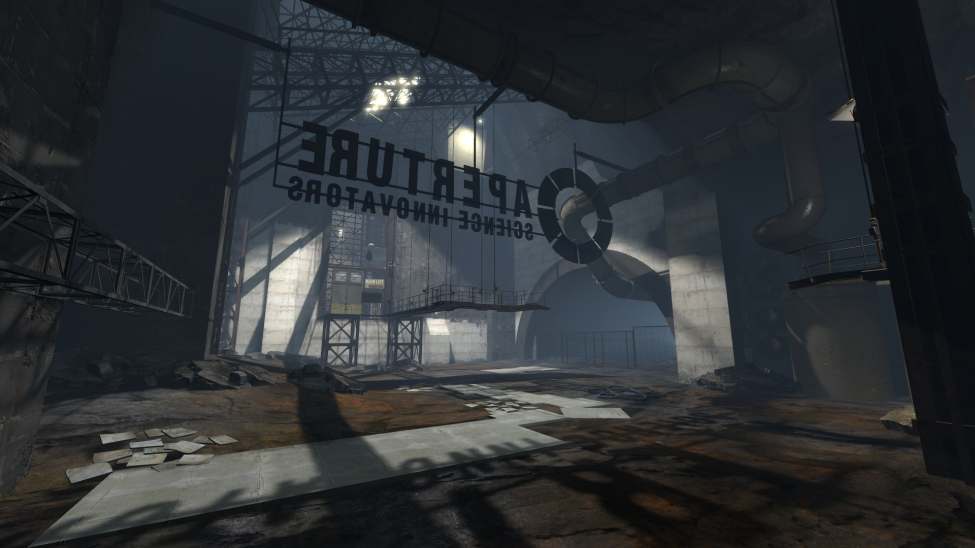Portal 2: 60 dollars well earned
Spoiler warning: No plot spoilers, but some insights into Portal 2’s general setting and atmosphere.
I don’t have much to say about Portal 2 for two reasons. First, posting spoilers for the game just feels like a bad idea. Letting you in on some of the gags or the overall trajectory of the plot would be criminal, so much so that even the requisite spoiler warning doesn’t feel like enough protection. So there’s no actual plot spoilers, but I am going to spoil the general atmosphere of the game. (Chances are this won’t be a huge surprise to you anyways.) Second, it’s hard to talk about a game when it’s been met with near-universal praise, to which you can only add your voice to the choir. It’s a lot like saying, “You might be wondering if this water is wet, and I’m here to tell you: yes, it most definitely is.”
The best analogy I’ve been able to come up with so far regarding Portal and its sequel, which by the way was inspired by this post in the NeoGAF spoiler thread (WARNING SPOILERS DUH), is that they share the same relationship as Alien and Aliens. The first edition is all about a mysterious danger—something lurks in the shadows, but it’s not clear what. By the sequel, everything’s out in the open. There are no questions of who’s the enemy; now it’s all about the fight. A hilariously truncated summary of Alien is “a monster trapped inside a space submarine,” but it gets across the claustrophobic crawlways of the Nostromo, the lurking, invisible danger, and the dark, foreboding tone that disappears almost completely in Aliens. The sequel, meanwhile, is all “get away from her, you bitch”—it’s action movie bravado and gutsy one-liners, even as it’s still about scaring the bejesus out of you.
Portal is not a horror game, but it definitely hits some of the same notes. When you start the game, everything is immaculate white surfaces and softly glowing blue lights; it’s only when you start to spot the cracks in that facade that the game’s more ominous elements come to light. A lot of Portal’s narrative power came from those discoveries; the humour of a detached AI slowly becoming less detached and more unhinged was great, but the horrible context is what lent the whole thing weight, and what makes your final escape so great. By the time you’re slowly being lowered into a fire pit of doom, you’ve already seen and heard enough to know GlaDOS can’t be trusted.
Portal 2, by contrast, largely drops the doom and gloom. There’s a lot more humour and a lot less in the way of creepy ratmen lairs (though that may only be because I didn’t find a lot of them; apparently they’re better hidden this time around). The approach to the sequel is to give more structure to the comedy; there are still plenty of one-liners, but there are also a lot more jokes that recur throughout the game, and even some whose payoffs aren’t evident until much, much later. As for the creepiness, because you’re interacting far more often with other characters (or at least hearing from them more often), you’re given less time to wander and freak yourself out. But more importantly, you’re just like Ripley in Aliens; you’ve already seen it all before, and you know it’s bad. There’s nothing ominous or sinister about Portal 2 because all the cards are on the table—there’s nothing left to hide.
[This article, sans images, originally appeared on Wesley’s Dear Game Diary tumblr]





891355 656127I adore your wp web template, wherever would you obtain it via? 237523